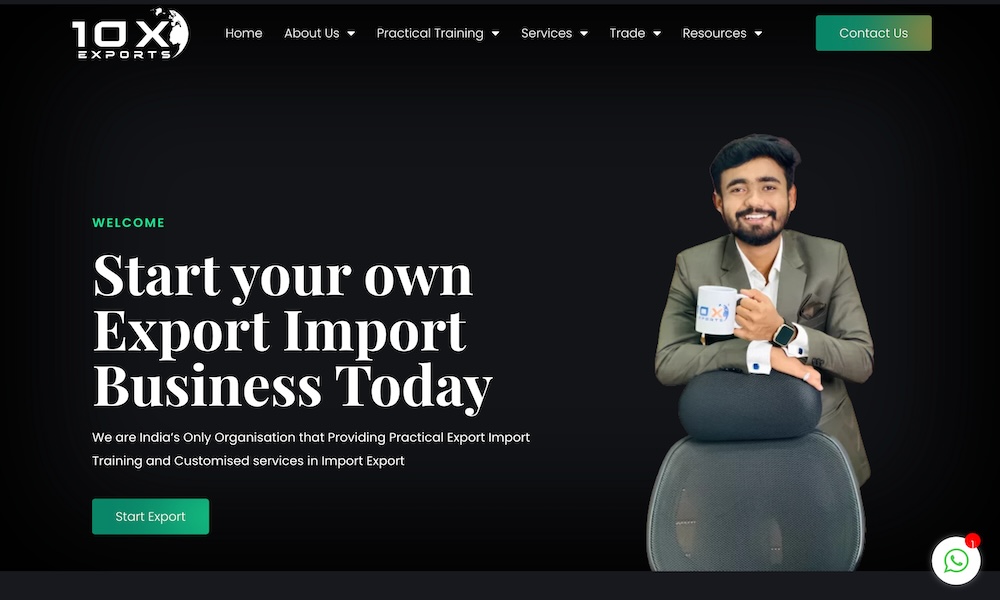Description
Introduction
Every country engages in global trade, with India alone exporting goods worth $447 billion and importing goods worth $714 billion. This signifies the significant scale of the import business in India, making it a substantial player in the global marketplace.
Starting an import business is an exciting venture for entrepreneurs seeking to expand globally. This article delves into the benefits and challenges of import businesses, offering insights for those looking to navigate this dynamic field successfully.
Advantages of Import Business
1. Access to Diverse Products
Importing allows businesses to offer a variety of products, tapping into the unique resources, expertise, and cultural influences of different countries. This diversity enriches product portfolios and attracts a broader customer base.
2. Cost-Effective Sourcing
Importing from countries with lower production costs can be more economical than domestic production. This includes factors like cheaper labor, raw materials, or favorable government policies, helping businesses reduce manufacturing expenses and increase profit margins.
3. Global Market Reach
Engaging in import business expands market reach globally. By connecting with international suppliers, businesses can increase sales volumes, revenue, and establish global brand recognition.
4. Competitive Advantage
Importing exclusive or high-quality products provides a competitive edge. Offering items not readily available locally can attract customers seeking novelty, fostering loyalty and repeat business.
5. Building Strong Business Relationships
Successful import businesses thrive on solid partnerships with foreign suppliers. Establishing trust through effective communication leads to favorable terms, priority access to new products, and support during market fluctuations.
6. Assured Profits
With demand in the local market, importing the right products after careful calculation of all expenses ensures assured profits. Many successful importers capitalize on existing local demand for a steady income.
Challenges In Import Business
1. Legal and Regulatory Compliance
Navigating import and trade regulations, customs laws, tariffs, and licensing requirements requires expertise. Utilizing the services of a customs broker or consultant is crucial for compliance.
2. Quality Control and Inspection
Maintaining product quality is essential for building trust. Regular inspections and quality control checks ensure imported products meet international standards and are free from defects.
3. Currency Exchange and Payment Risks
Dealing with international suppliers involves currency exchange risks. Hedging strategies and fixed currency exchange rate contracts can mitigate these risks.
4. Supplier Risk
Dealing with suppliers in other countries involves risks in cargo delivery and payments. Thorough supplier verification and proper documentation are essential to avoid disputes.
5. Logistics and Transportation
Efficient logistics and transportation are vital for timely and cost-effective operations. Working with reliable shipping partners and custom clearance agencies ensures seamless importation and distribution processes.
6. Calculating the Right Price
Understanding all expenses, including custom duty, GST, and hidden costs, is crucial for calculating the imported product's landing price. This knowledge prevents unexpected expenses that can impact profits.
Tips For A Successful Import Business
1. Thorough Market Research
Identify in-demand products and potential competitors through comprehensive market research. Understanding market trends and consumer preferences optimizes product selection for better sales performance.
2. Supplier Evaluation and Verification
Vet potential suppliers carefully to ensure reliability and credibility. Checking references, visiting manufacturing facilities, and reviewing certifications verify the legitimacy of suppliers.
3. Negotiation Skills
Practical negotiation skills lead to favorable terms and competitive prices. Aim for mutually beneficial deals with suppliers to optimize profit margins.
4. Right Payment Terms
Manage cargo nondelivery and nonpayment risks through trade conducted via banks and financial instruments like LC. Understanding payment risks and working on favorable terms is essential.
5. Proper Documentation and Contracts
Maintain accurate documentation for smooth customs clearance and legal compliance. Well-drafted contracts with suppliers clarify terms and minimize misunderstandings.
6. Risk Mitigation Strategies
Develop strategies to address challenges like supply chain disruptions, currency fluctuations, and political instability. Proactive risk mitigation enhances resilience in the import business.
7. Competitor Analysis
Analyze competitors in the import business to make informed decisions. Accessing information about importers and their products through tools like India Import Export Federation's Buyer Data aids in strategic decision-making.
8. Marketing and Sales
Effective marketing and sales activities are crucial for business growth. For import businesses, a well-designed website and brochures generate leads and create a strong online presence.
Conclusion
Embarking on an import business journey offers access to diverse products, cost-effective sourcing, and global market reach. Success in this venture requires overcoming challenges through diligent research, strategic planning, and strong supplier relationships. The Import Export Federation provides comprehensive support, guiding entrepreneurs through the complete import-export cycle, including banking, risk management, documents, compliances, and logistics.
About Import Export Federation
The Import Export Federation offers online import business training, classes, and live webinars, providing essential knowledge for starting a self-import-export journey. With a focus on Pune and Mumbai, the federation aims to equip entrepreneurs with the skills needed for a successful import business.
FAQs
Q1: What legal considerations should be addressed in import business?
Legal considerations include customs laws, tariffs, licensing requirements, and compliance. Utilizing services like those offered by the Import-Export Federation ensures proper licensing and compliance.
Q2: How can importers mitigate currency exchange risks?
Importers can use hedging strategies or negotiate contracts with fixed currency exchange rates to mitigate currency exchange risks. Consulting banking experts can provide guidance on managing fluctuation risks.
Q3: Why is thorough market research essential for import businesses?
Thorough market research identifies in-demand products, potential competitors, and consumer preferences. This information guides product selection and enhances sales performance.
Q4: How can businesses ensure the quality of imported products?
Regular inspections and quality control checks are essential to ensure that imported products meet international standards and are free from defects. Third-party agencies can conduct audits and inspections globally.
Q5: What role does the Import Export Federation play in supporting businesses?
The Import Export Federation provides comprehensive support, guiding entrepreneurs through the complete import-export cycle. Services include assistance with banking, risk management, documents, compliances, and logistics.
Related Websites
-
Soulflower Design Studio
by Soulflower Design Studio
734 -
WellPCB
by WellPCB
1385 -
Double vision Eye Care
by Double vision Eye Care
295




